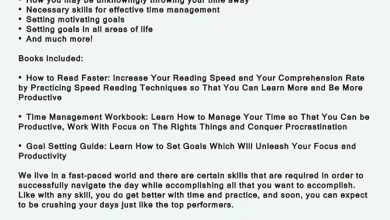How Critical Thinking Helps in Problem Solving? Explained!

If you’re looking to improve your problem-solving skills, then you might want to consider developing your critical thinking abilities. Critical thinking is the process of analyzing, evaluating, and interpreting information to form a conclusion or judgment. It’s a valuable skill that can help you think more clearly, make better decisions, and solve problems more effectively.
When you’re faced with a problem, critical thinking can help you break it down into smaller parts, identify the underlying issues, and evaluate potential solutions. It can also help you consider different perspectives and weigh the pros and cons of each option. By using critical thinking, you can make more informed decisions and increase your chances of finding a successful solution.
So, how exactly does critical thinking help in problem-solving? Let’s take a closer look at how critical thinking can be applied to problem-solving, as well as some examples of how it works in practice.
Key Takeaways
- Critical thinking is the process of analyzing, evaluating, and interpreting information to form a conclusion or judgment.
- Developing your critical thinking abilities can help you break down problems, identify underlying issues, and evaluate potential solutions.
- By using critical thinking in problem-solving, you can make more informed decisions and increase your chances of finding a successful solution.
Understanding Critical Thinking

When faced with a problem, it is essential to approach it with a critical thinking mindset. Critical thinking is the ability to analyze and interpret information, evaluate evidence, and make a judgment based on logic and reasoning. Critical thinkers are inquisitive and open-minded, always asking questions and considering alternative interpretations.
To develop critical thinking skills, education should focus on active learning, brainstorming, and reflection. Science and democracy both rely on critical thinking skills to evaluate the credibility of evidence and advocate for informed decisions.
When practicing critical thinking, it is important to be aware of biases and assumptions that may influence your judgment. Self-reflection and evaluation of past experiences can help identify these biases and improve critical thinking skills.
In summary, critical thinking is a vital skill in problem-solving. It involves the ability to analyze and evaluate evidence, consider alternative interpretations, and make informed judgments based on logic and reasoning. Developing critical thinking skills requires education, active learning, and self-reflection.
How Does Critical Thinking Help Solve A Problem?
When faced with a problem, critical thinking helps you to analyze the situation objectively and make informed decisions. It involves asking questions, examining evidence, and considering different interpretations to arrive at a solution that is logical and effective.
One of the key benefits of critical thinking is that it helps you to identify and challenge assumptions. By questioning assumptions, you can uncover biases and gaps in your knowledge that may be hindering your ability to solve the problem.
Another way that critical thinking helps in problem-solving is by breaking down complex problems into smaller, more manageable parts. This allows you to focus on one aspect of the problem at a time, which can make it easier to identify potential solutions.
In addition, critical thinking helps you to evaluate the pros and cons of different solutions, and to consider the potential consequences of each option. By weighing the risks and benefits of each choice, you can make a more informed decision that is likely to have a positive outcome.
Overall, critical thinking is an essential tool for problem-solving. It allows you to approach problems in a structured and systematic way, and to make decisions based on evidence and logic rather than emotion or intuition.
What is an example of critical thinking to solve a problem?
When it comes to problem-solving, critical thinking is an essential skill to have. It helps you to analyze information, identify the root cause of a problem, and come up with a logical solution. Here is an example of how critical thinking can help you solve a problem:
Let’s say you are a project manager, and your team is struggling to meet a deadline. Instead of simply pushing your team harder, you decide to use critical thinking to identify the root cause of the problem. You gather data and analyze it to determine why the team is falling behind. You find that the team is struggling with a particular task that requires a specific skill set.
Using critical thinking, you come up with a solution to the problem. You identify team members who have the required skill set and assign them to the task. You also provide additional training to team members who need it. As a result, the team is able to meet the deadline, and the project is completed successfully.
This example demonstrates how critical thinking can help you solve problems by identifying the root cause of the problem and coming up with a logical solution. It also shows how critical thinking can help you to avoid simply pushing harder and instead find a more effective solution.
How to Apply Critical Thinking to Problem Solving
When faced with a problem, applying critical thinking can help you evaluate and solve it effectively. Here are some steps you can take to apply critical thinking to problem solving:
Defining and Understanding the Problem
The first step in problem solving is defining the problem. This involves understanding what the problem is and what you want to achieve. To define the problem, ask questions and analyze the situation. This will help you gain a clear understanding of the problem and what needs to be solved.
Gather Relevant Information
Once you have defined the problem, gather relevant information to help you analyze and solve it. This involves researching and analyzing data, facts, and other information related to the problem. By gathering relevant information, you can identify patterns and connections that will help you develop effective solutions.
Generating Solutions and Creative Thinking
After gathering relevant information, it’s time to generate possible solutions. This involves brainstorming and using creative thinking to come up with innovative solutions. Consider all possibilities and evaluate each one objectively. This will help you identify the best possible solution to the problem.
Making Decisions and Taking Action
Once you have generated possible solutions, it’s time to make a decision and take action. This involves assessing the pros and cons of each solution and selecting the best one. After making a decision, take action and implement the solution. Monitor the results and adjust your approach if necessary.
Active Listening and Empathy in Problem Solving
Active listening and empathy are important skills in problem solving. This involves listening to others and understanding their perspective. By actively listening and showing empathy, you can build stronger relationships and improve communication. This will help you work effectively with others to solve problems.
Critical Thinking in the Workplace and Career
Critical thinking is an important skill in the workplace and can help you advance your career. By applying critical thinking, you can make better decisions, solve problems more effectively, and improve your presentation skills. This will help you build stronger connections with colleagues and advance your career.
Frequently Asked Questions
What are the essential characteristics that define a strong critical thinker?
A strong critical thinker is someone who possesses the ability to analyze information objectively, evaluate arguments, and identify biases or assumptions, including their own. They are open-minded and consider all possible options before making a decision. They also have the ability to break down complex problems into smaller, more manageable pieces. Additionally, a strong critical thinker is willing to tolerate ambiguity, consider other interpretations, and avoid oversimplification.
Can you provide some examples where critical thinking was key to solving a problem?
Critical thinking is essential in problem-solving, and there are countless examples where it has been key to finding solutions. For instance, in the field of medicine, doctors use critical thinking to diagnose illnesses and develop effective treatment plans. In the business world, entrepreneurs use critical thinking to identify opportunities and make strategic decisions. Critical thinking is also essential in the legal field, where lawyers use it to analyze complex cases and develop persuasive arguments.
What strategies are effective for developing critical thinking and problem-solving skills?
There are several strategies that can help you develop critical thinking and problem-solving skills. One effective strategy is to practice brainstorming and come up with multiple potential solutions to problems. Another strategy is to ask questions and seek out multiple perspectives. Additionally, breaking down problems into smaller, more manageable pieces can make them easier to solve. Finally, practicing active listening and considering the opinions of others can help you develop stronger critical thinking and problem-solving skills.
In what ways does critical thinking facilitate better decision-making processes?
Critical thinking facilitates better decision-making processes by helping you analyze information objectively, identify biases or assumptions, and consider all possible options before making a decision. It also helps you avoid emotional reasoning and oversimplification, which can lead to poor decision-making. Critical thinking also helps you tolerate ambiguity and consider other interpretations, which can lead to more creative and effective solutions. By developing strong critical thinking skills, you can improve your decision-making processes and make more informed and effective decisions.
Final Words
In conclusion, critical thinking is an essential skill that helps you analyze, evaluate, and solve complex problems. By using critical thinking, you can approach problems in a systematic and logical way, and identify the root cause of the problem. This enables you to develop effective solutions that address the underlying issue and prevent it from recurring.
Remember, critical thinking is not something that comes naturally to everyone. It requires practice and a willingness to challenge your assumptions and biases. By developing your critical thinking skills, you can become a more effective problem solver and make better decisions in all areas of your life.
Incorporate the strategies and techniques discussed in this article, such as defining the problem, generating possibilities, creating a plan, and performing your plan, to help you approach problems in a more structured and effective way. With practice, you can become a skilled critical thinker and problem solver, and achieve greater success in your personal and professional life.



